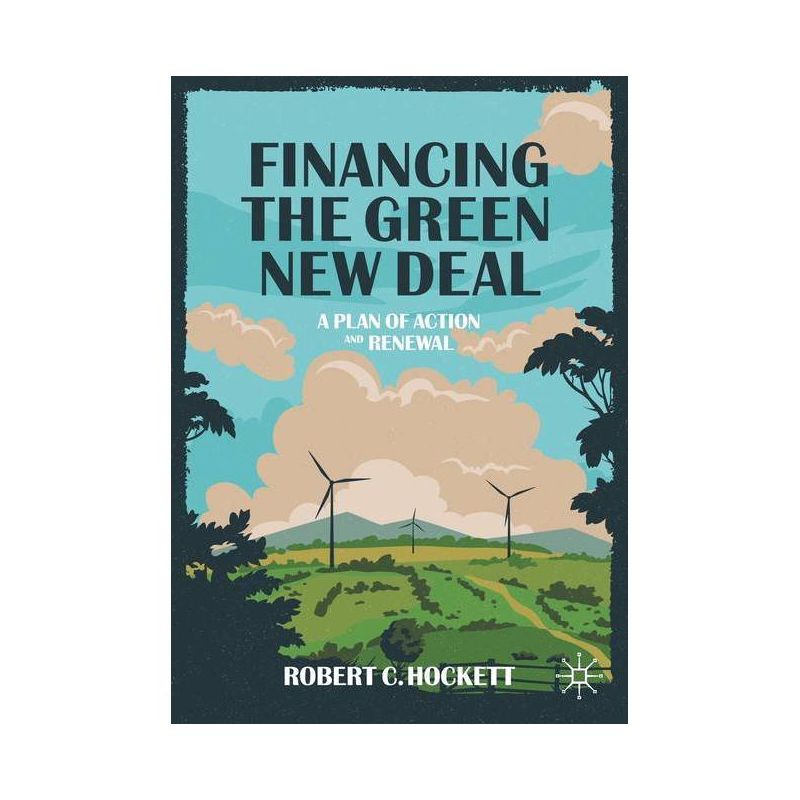Sponsored
Financing the Green New Deal - by Robert C Hockett (Paperback)
Sponsored
About this item
Highlights
- Climate scientists have determined that we must act now to prevent an irreversible and catastrophic climatic tipping point, beyond which neither our own nor many other species can be assumed likely to survive.
- About the Author: Robert C. Hockett is Edward Cornell Professor of Law and Professor of Public Policy at Cornell University, USA.
- 99 Pages
- Business + Money Management, Economics
Description
Book Synopsis
Climate scientists have determined that we must act now to prevent an irreversible and catastrophic climatic tipping point, beyond which neither our own nor many other species can be assumed likely to survive. On the way to that bleak ending, moreover, extreme socio-economic injustice and associated political breakdown--now well underway in nations already hard-hit by environmental crisis--can be expected to hasten as well.
The time has thus come to plan carefully, thoroughly, and on a scale commensurate with the crisis we face. This book, written by one of the key architects of the Green New Deal and prefaced by Representative Alexandria Ocasio-Cortez's former Chief of Staff, indicates how to structure Green New Deal finance in a manner that advances the cross-cutting goals of maximum financial and economic inclusion, maximally democratic decision-making, and an appropriate division of roles both among all levels of government and among public and private sector decision-makers.
Integrating into one complete and coherent financial architecture such bold ideas as a 'People's Fed, ' an interdepartmental National Investment Council, integrated state and regional public banks, a Democratic Digital Dollar and digital Taxpayer Savings and Transaction Accounts made part of the monetary policy transmission belt, and an economy-wide Price Stabilization Fund, this book is critical reading for policymakers and citizens looking for a fresh path forward towards a revived and sustainable, progressive and productive America.
From the Back Cover
Climate scientists have determined that we must act now to prevent an irreversible and catastrophic climatic tipping point, beyond which neither our own nor many other species can be assumed likely to survive. On the way to that bleak ending, moreover, extreme socio-economic injustice and associated political breakdown--now well underway in nations already hard-hit by environmental crisis--can be expected to hasten as well.
The time has thus come to plan carefully, thoroughly, and on a scale commensurate with the crisis we face. This book, written by one of the key architects of the Green New Deal and prefaced by Representative Alexandria Ocasio-Cortez's former Chief of Staff, indicates how to structure Green New Deal finance in a manner that advances the cross-cutting goals of maximum financial and economic inclusion, maximally democratic decision-making, and an appropriate division of roles both among all levels of government and among public and private sector decision-makers.
Integrating into one complete and coherent financial architecture such bold ideas as a 'People's Fed, ' an interdepartmental National Investment Council, integrated state and regional public banks, a Democratic Digital Dollar and digital Taxpayer Savings and Transaction Accounts made part of the monetary policy transmission belt, and an economy-wide Price Stabilization Fund, this book is critical reading for policymakers and citizens looking for a fresh path forward towards a revived and sustainable, progressive and productive America.
About the Author
Robert C. Hockett is Edward Cornell Professor of Law and Professor of Public Policy at Cornell University, USA. He is also Senior Counsel at Westwood Capital, a socially responsible investment bank, and a Visiting Professor of Finance at Georgetown University's McDonough School of Business. Formerly with the Federal Reserve Bank of New York and the International Monetary Fund, his principal teaching, research, and writing interests lie in the fields of organizational, financial, and monetary law and economics in both their positive and normative, as well as their national and transnational, dimensions. His guiding concern in these fields is with the legal and institutional prerequisites to a just, prosperous, and sustainable economic order.Additional product information and recommendations
Sponsored
